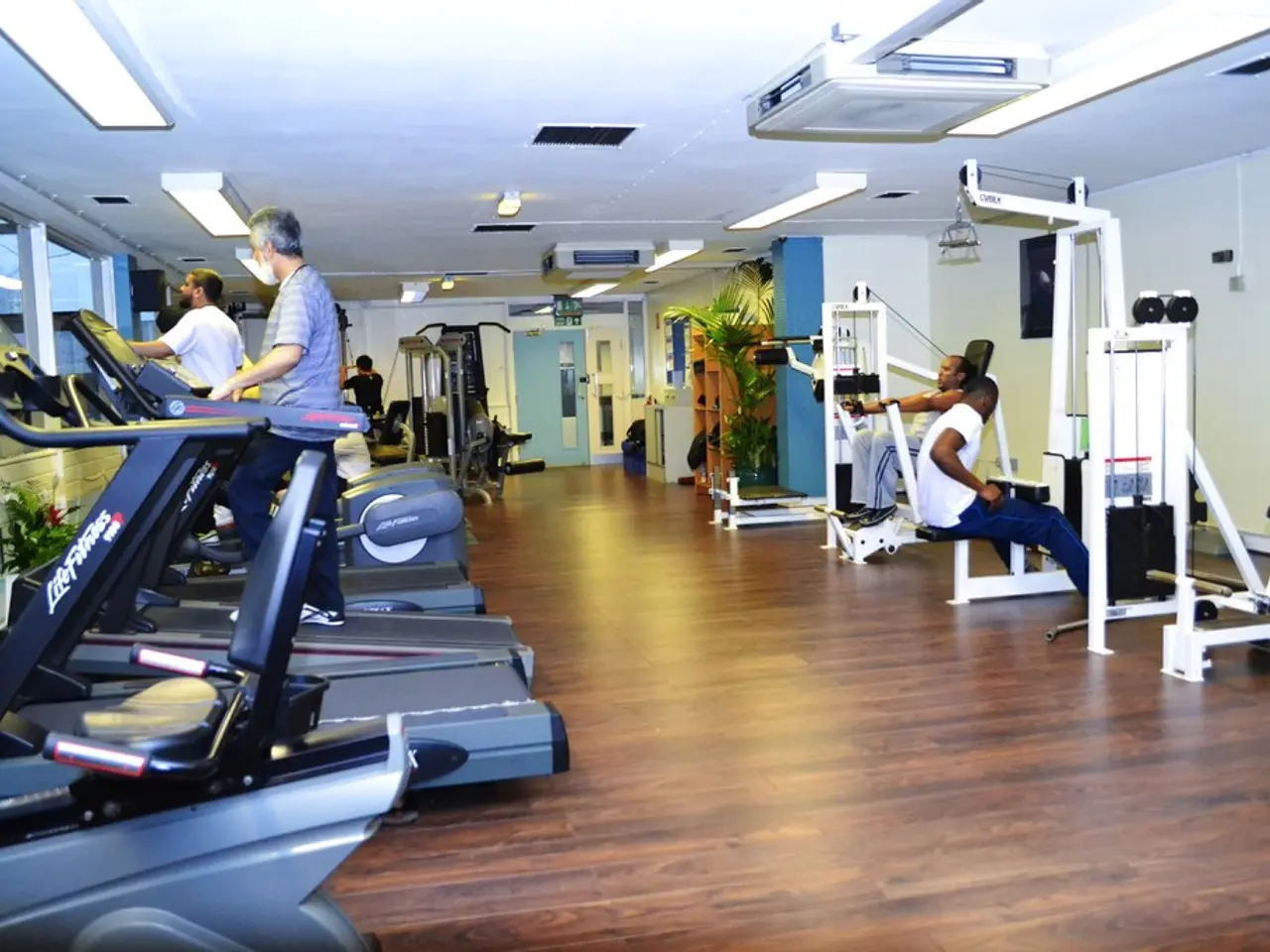Uncover training techniques that develop character and fortitude, transcending mere victory on the field.
In the world of sports, physical fitness is often the first aspect that comes to mind when thinking about an athlete's success. However, a comprehensive approach to athletic training - known as holistic athletic training - goes far beyond just physical fitness. This method integrates physical, mental, emotional, and lifestyle factors to help athletes excel not only in sports but also in their personal and professional lives.
Comprehensive Assessment and Individualised Training
A key component of holistic athletic training is a comprehensive physical assessment, tailoring training plans to each athlete's unique needs. This approach considers cardiovascular endurance, strength, flexibility, movement patterns, and recovery needs to ensure optimal physical performance and injury prevention [1][3].
Mental and Emotional Health Support
Mental health care is another crucial aspect of holistic athletic training. Sports psychologists or other mental health professionals are often engaged to foster mindfulness, meditation, and stress management techniques, maintaining psychological resilience and preventing burnout [1].
Balanced Lifestyle Management
Work-life balance is essential for sustaining motivation and emotional wellbeing. Prioritising time for family, friends, and non-sport activities is key to this approach [1].
Sustainable Training and Recovery Strategies
Periodized training, planned recovery, nutrition optimisation, sleep hygiene, and hydration are all vital for supporting long-term athlete health and performance [1][3].
Skill Development and Personal Growth
Holistic athletic training also encourages leadership, teamwork, time management, and discipline through group training formats. These skills not only contribute to athletic excellence but also to lifelong life skills [2].
Integration of Nutrition and Holistic Wellness Coaching
Fueling strategies are coordinated with training demands, lifestyle stressors, and social support systems to achieve a comprehensive wellness approach [3][4].
The Power of Mental Toughness
Mental toughness is a vital component of holistic athletic training. It equips athletes with the ability to handle pressure, maintain focus, and bounce back from setbacks during competition. Developing mental toughness helps athletes stay motivated during tough training sessions and maintain a positive mindset even when faced with challenges [2].
A Positive Team Environment
A positive team environment is essential for fostering a sense of unity, confidence, and teamwork. It allows athletes to push themselves while being free to be themselves and learn from mistakes [2].
The Lasting Impact of Holistic Training
Holistic athletic training promotes growth that lasts a lifetime, not just during the season. It equips athletes with the skills and mindset needed to thrive not only in sports but also in the face of life's demands [2].
Professional Support for Mental Toughness
For some individuals, professional support may be necessary to build mental toughness, especially when dealing with deeper issues like addiction or trauma [2]. Facilities like Shore Point Recovery | Luxury Rehab & Alcohol Detox Center can provide the necessary support in such cases.
Mindfulness and Recovery
Mindfulness supports recovery by promoting relaxation and reducing stress. Recovery is as important as training for building strong athletes, preventing burnout or injury [2].
The Roots of Mental Toughness
The concept of mental toughness has roots in early sports psychology, which emphasised the importance of the mind's role in performance. Integrating mental toughness training into athletic programs promotes overall well-being and prepares individuals to face challenges confidently and calmly [2].
In conclusion, holistic athletic training extends far beyond physical fitness. It encompasses mental, emotional, and lifestyle factors to help athletes excel not only in sports but also in their personal and professional lives. By focusing on comprehensive physical assessment, mental and emotional health support, balanced lifestyle management, sustainable training and recovery strategies, skill development, personal growth, nutrition, and holistic wellness coaching, athletes can develop the physical capabilities, mental toughness, emotional balance, and life skills needed to achieve excellence in all aspects of their lives.
- In holistic athletic training, mental health care is crucial, with sports psychologists or other professionals teaching mindfulness, meditation, and stress management techniques to maintain psychological resilience and prevent burnout.
- Periodized training, planned recovery, optimization of nutrition, good sleep hygiene, and hydration are essential for supporting long-term athlete health and performance.
- Holistic athletic training also encourages leadership, teamwork, time management, and discipline through group training formats, skills that not only contribute to athletic excellence but also to lifelong life skills.
- Integrating mental toughness training into athletic programs promotes overall well-being and prepares individuals to face challenges confidently and calmly, with mental toughness equipping athletes to handle pressure, maintain focus, and bounce back from setbacks during competition.




